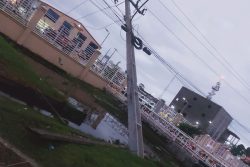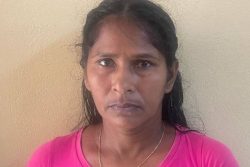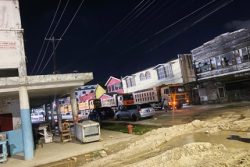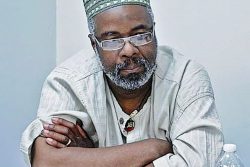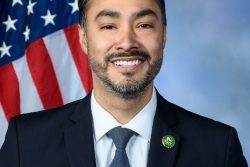A little over a year ago Mr Juan Guaidó declared himself president of Venezuela on the grounds that the 2018 election had been rigged by President Nicolás Maduro. A significant number of Western and hemispheric countries led by the US recognised his claim. The assumption was that the military would desert President Nicolás Maduro and give its support to Mr Guaidó, who had promised to function merely as an interim president under the constitution in order to facilitate a new election. Applying economic pressure, Washington placed Caracas under sanctions, the most punitive one being the outlawing of purchases of Venezuelan oil in circumstances where the US had always been Venezuela’s biggest customer.
While Washington added to the list of sanctions during the course of 2019, Mr Maduro clung on to power, and although millions of his people emigrated owing to extreme economic hardship, the military did not withdraw its support for the regime. Demonstrations on the streets in the earlier part of the year were met by the National Guard, and in due course direct confrontation fizzled out. In addition the government found ways to circumvent the oil sanctions, largely with the help of the Russian state oil giant, Rosneft, to which at one point it owed a substantial debt, although that has now been dramatically reduced.
Furthermore, PDVSA appears to be recovering from its rapid decline after 2015. According to the Economist it has signed an agreement with an Indian company for the repair of refineries, among other things. The government avoided a total financial crisis by selling off its reserves, as well as from narcotics and the sale of gold, some of it, it should be added, thought to originate from criminal gangs like Los Guajiros de Guayana which manages certain state mines in Bolívar state next to our border.
While Christmas last year was grim for Venezuelans, circumstances this year are a little more relaxed – at least in Caracas. The reason is simply that the President has retreated on the economic aspects of chavismo, and the private sector is beginning to assert itself in a modest way in the capital. While many businesses could not survive the blackouts and hyper-inflation, new ones are emerging all over the city in their place. And it would seem too that inhabitants look for their own solutions in the crisis, something Guyanese would be familiar with from times gone by.
According to the Economist, the oil sanctions delivered a sufficient shock to force the government to change philosophical direction. Mr Maduro has now lifted the economic controls imposed by his predecessor, Hugo Chávez, and the government no longer stipulates the exchange rate or controls prices. As a consequence, private companies can import whatever they wish and set their own prices. Now any number of transactions are conducted in US$, and while prices are usually quoted in bolivares, payment is often made in dollars.
According to the Caracas Chronicles, it’s more common to see cash dollars than bolivares on the streets. Despite the high prices which have most people struggling, the website says “there is a general sense of security in dealing in a currency that actually has some value.” It goes on to comment that many employers just pay a small portion of wages in bolivares for payroll purposes and in some cases to calculate labour benefits. The rest is paid off the books or in parallel books.
Generally speaking, the improvement in living conditions for the present affects only the capital; the rest of the country is no better off than it was before. This has resulted in internal migration. People come to Caracas, according to the Caracas Chronicles, because it is the only city in the country “with (partially) running water, electricity and [the] internet.” The Economist quotes a satirical website which has Mr Maduro proclaiming, “The Republic of Caracas cannot continue receiving Venezuelan refugees.” The magazine goes on to assert that “quiescence in Caracas is what the President wants most, and that access to dollars will reduce the likelihood of anti-government protest.
The Economist reports as well that it is not just the wealthy sectors of society which have access to dollars, but that perhaps a third of Venezuelans receive remittances from abroad. These amount to US$4 billion a year, or 3% of GDP. This is a phenomenon well known in other parts of the hemisphere, including here. The magazine says that taxi drivers and cleaning ladies quote prices in dollars, even if they will accept bolivares as payment.
The result of all this is that supermarkets are once again stocked with food, and traffic jams which had previously disappeared are back on the capital’s streets. This is most likely because car parts are now available, although some theorise it is because migrants are returning or that it is a consequence of immigrants from other parts of the nation bringing their vehicles with them.
The other factor bringing some relief to citizens in the poor areas and taking the pressure off the government, is the work of NGOs, such as Alimenta la Solidaridad, which has a project in Petare, Latin America’s largest barrío, or slum. It feeds 3,000 children in Petare through 33 dining centres, as well as 12,000 nationwide. The food is prepared by the mothers of the community, who are organized and trained by the NGO. Alimenta also ensures that all children who participate in the project attend school.
Private enterprise is rearing its head in a number of the barríos as well, such as La Cruz, where according to the Chronicles one can find English classes, beauty parlours and hamburgers, most of which accept dollars. The website quoted a leader of the community describing a visit by the Governor of Miranda, who promised they were going to give 20 million bolivares to La Cruz. “You know how much that is?” she asked rhetorically, “It’s 800 dollars! What are we going to do with 800 dollars?”
The website argues that many people have simply “turned the page” on politics. “Folks just got tired of waiting for the government to solve their problems or waiting for a miracle from the opposition. No one is thinking about the sanctions or where the heck is Maduro right now: Giving away the oil industry to its foreign allies? Illegally extracting gold? No one cares.”
Whatever the truth of this, it is very likely that if the White House believes the increasing effects of sanctions might persuade Mr Maduro to vacate Miraflores, it is mistaken, and it will be obliged to rethink its strategies. The Economist reports, however, that President Donald Trump may indeed be casting around for new approaches, one of which is working with Russia to put pressure on the Venezuelan President. One can only remark that that does not suggest itself as a potentially successful campaign plan.
However, it also refers to the founder of Blackwater Security Consulting, Erik Prince, a strong supporter of the US President, meeting Venezuela’s Vice-president Delcy Rodrigues. This, said the magazine, had led to conjecture that they might be arranging a “back channel” which would bypass Mr Guaidó. If so, Mr Guaidó might find himself unexpectedly removed from the centre of the action next year.


